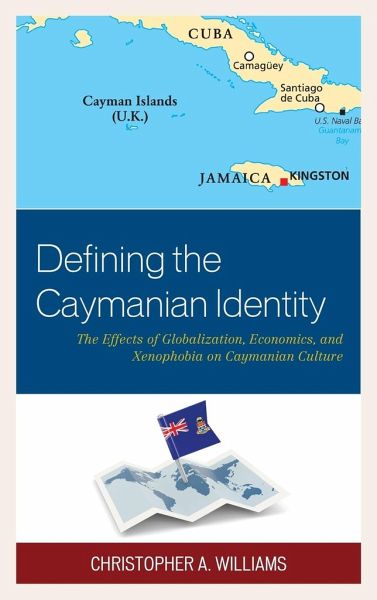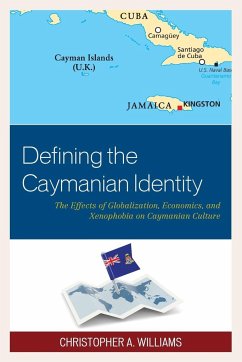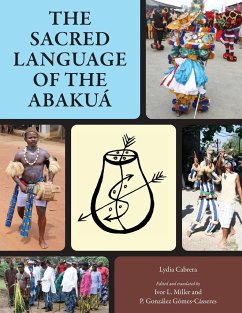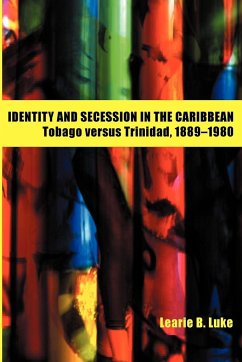
Defining the Caymanian Identity
The Effects of Globalization, Economics, and Xenophobia on Caymanian Culture
Versandkostenfrei!
Versandfertig in 1-2 Wochen
118,99 €
inkl. MwSt.
Weitere Ausgaben:

PAYBACK Punkte
59 °P sammeln!
This book analyzes the factions and schisms surging throughout the multicultural, multiethnic, and polarized Cayman Islands to identify who or what is considered a Caymanian. Caymanian traditions have all but been eclipsed, often due to incoming, overpowering cultural sensibilities; with this idea in mind, Williams investigates the pervasive effects of globalization, multiculturalism, economics, and xenophobia on indigenous Caymanian culture.














